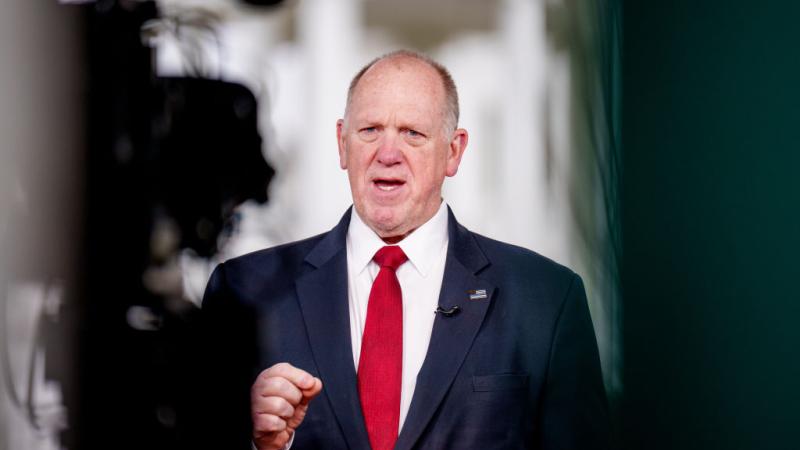Bills to protect campus free speech could make cancel culture worse, watchdog warns
Bills likely headed for governor's desk could expose students and professors to outrage mobs.
When a California community college suspended a student for recording and sharing his professor's classroom rant against President-elect Donald Trump, public outrage and a legal threat convinced the college to back down.
Recording in the classroom has become an even more contentious issue since the COVID-19 pandemic drove nearly all higher education online. The University of Notre Dame threatened harsh sanctions against students who share recordings for the purpose of "inviting external commentary, ridicule, or embarrassment."
Florida lawmakers are siding with students who want to share recordings under specific circumstances as part of broader "intellectual freedom and viewpoint diversity" legislation.
But a higher education watchdog is warning that the House and Senate bills could actually worsen cancel culture on Florida campuses by exposing students and faculty to outrage mobs for their classroom discussions.
The Foundation for Individual Rights in Education told Just the News Tuesday that it worked with the sponsor of the Senate bill to narrow its scope.
The resulting changes, however, "actually made it worse," said Joe Cohn, FIRE's legislative and policy director. The group is especially concerned about a provision that would let professors sue students for sharing recordings without their consent, which "sounds like unwise policy."
Cohn believes lawmakers care about these issues, but "this is not the kind of thing that should be rushed in an individual session" without consulting stakeholders about pros and cons. "I can't underscore enough how detrimental this [bill] language will be" for student free speech and faculty academic freedom, he said.
The Senate bill (SB 264) is awaiting a floor vote, while the House bill (HB 233) passed its chamber last week. Sen. Ray Wesley Rodrigues and Rep. Spencer Roach, the sponsors of the bills, didn't respond to queries.
The office of Gov. Ron DeSantis also did not answer whether he would sign such legislation in light of concerns about its potential to chill classroom speech.
Professors could sue students for up to $200,000
Florida is not the first state to tackle the question of protections for students who share classroom recordings. The California community college incident prompted state legislation to protect such students as whistleblowers.
The Florida bills impose obligations on state colleges to protect and promote intellectual freedom and viewpoint diversity. They also protect faculty research, lectures and "commentary" as expressive activity.
Other provisions allow students to "record video or audio of class lectures for their own personal educational use" as well as "in connection with a complaint" to the college, but they cannot be "published" without the consent of the instructor.
Students could sue their colleges for violating their expressive rights, and faculty could sue those who make unauthorized recordings — including students — for up to $200,000.
In a blog post Monday, FIRE's Cohn explained how the provisions could worsen the "current social climate, in which video or audio recordings of unpopular or controversial student or faculty expression (often taken out of context) are routinely used to 'cancel' people of all political persuasions."
At a time when students are already "self-censoring at alarming rates" to avoid being singled out for unpopular views, the "mere existence" of classroom recordings can further chill discussion of controversial ideas, he said.
The legislation doesn't specify the scope of internal complaints under which recordings can be shared, or even require complaints to be filed in "good faith." This invites "gotcha" politics, Cohn said: "Will conservative students have to watch their words to avoid being reported to campus administrators?"
Because of the definition of publication, faculty likely could not stop recordings from being used in "politically motivated complaints" seeking their termination. The legislation also targets those who publish unauthorized recordings, rather than those who make them, which could endanger journalists who obtain leaked materials, Cohn said.
FIRE raised "general concerns early on in the process" about the wide scope of the Senate bill, Cohn said in an interview. The original version offered by Rodrigues, the state senator, put no conditions on classroom recording, which would allow "people using it as a weapon to go after controversial statements" in class.
The senator added conditions to the recording provisions in "an attempt to acknowledge that we had legitimate concerns," but the results were even worse, Cohn said. FIRE has not met with Roach, the House sponsor, even though it has worked with him on campus free speech issues, and has not met with the governor's staff yet.
The legislation should trouble those who worry about students "biting their tongues for fears of public backlash," Cohn said.
A spokesperson for the American Association of University Professors told Just The News that the group hadn't been following the legislation, and did not plan to intervene, but said "FIRE's concerns seem justified."















